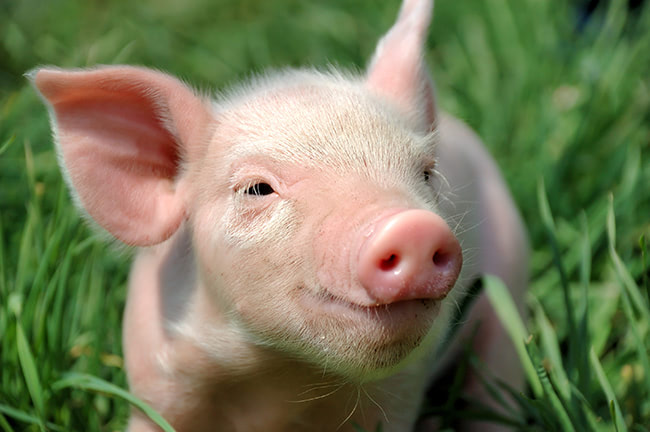Replacing your old heart with a new one from an animal may seem a bit extreme? Well, this future may arrive sooner than we think. Researchers, at the National Institutes of Health (NIH) in Bethesda, Maryland, have been working for ten years to get an amazing result. Their goal? To use pig as donors for heart transplants in humans.
“We are one step closer to using pig hearts in humans” explains co-author Muhammad Mohiuddin, from the National Heart, Lung and Blood Institute in Maryland, to the AFP news agency.
You would think that the human specie couldn’t have the organs of different species, since infections could cause the body to reject the donated organ. By using a combination of gene modification and immune-suppressing drugs, researchers have managed to keep a pig heart beating in a baboon’s abdomens for over two years. During this study the baboon kept their own hearts, as the pigs heart was connected through two large blood vessels in the abdomen. Even though the baboon’s heart kept beating, the result that the organ wasn’t rejected could be seen as a giant step towards Xenotransplants.
"Xenotransplants - organ transplants between different species - could potentially save thousands of lives each year that are lost due to a shortage of human organs for transplantation".
But why using a pig heart? Given the genetically similarity, we would assume that the heart of a baboon or a chimpanzee would be more fitting to become a donor. But next to ethical issues, there is also a matter of scale and the fact that these animals appear to be endangered species. The pig has been proven to be the best candidate, given the size and the anatomically similarities. Next to this, pigs pose a lower risk to diseases.
Currently there are more then 5000 cardiac transplants completed over the world each year, but it is estimated that up to 50.000 people are waiting for a donor heart. It’s hard to imagine the impact of using big hearts on such a big scale. Where are we getting the pig hearts from? And can we engage with the animal before we’ll get its heart? Who knows what can happen once this technology will be applied in the current health system.
Source: BBC, Nature, Sciencemag. Image: Modvive

Share your thoughts and join the technology debate!
Be the first to comment